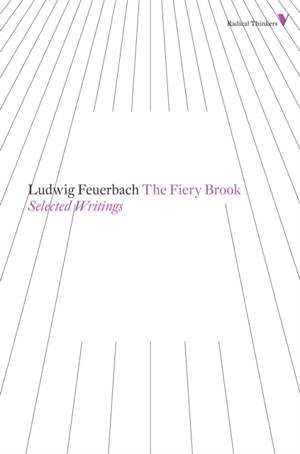
Wil je zeker zijn dat je cadeautjes op tijd onder de kerstboom liggen? Onze winkels ontvangen jou met open armen. Nu met extra openingsuren op zondag!
- Afhalen na 1 uur in een winkel met voorraad
- Gratis thuislevering in België vanaf € 30
- Ruim aanbod met 7 miljoen producten
Wil je zeker zijn dat je cadeautjes op tijd onder de kerstboom liggen? Onze winkels ontvangen jou met open armen. Nu met extra openingsuren op zondag!
- Afhalen na 1 uur in een winkel met voorraad
- Gratis thuislevering in België vanaf € 30
- Ruim aanbod met 7 miljoen producten
Zoeken
€ 32,45
+ 64 punten
Omschrijving
Feuerbach's departure from the traditional philosophy of Hegel opened the door for generations of radical philosophical thought. His philosophy has long been acknowledged as the influence for much of Marx's early writings. Indeed, a great amount of the young Marx must remain unintelligible without reference to certain basic Feuerbachian texts. These selections, most of them previously untranslated, establish the thought of Feuerbach in an independent role. They explain his fundamental criticisms of the 'old philosophy' of Hegel, and advance his own humanistic thought, which finds its bases in life and sensuality. Feuerbach's contemporaneity as an existentialist, humanist, and atheist is clearly presented, and the reader can readily grasp the liberating influence of this too-long neglected philosopher. Professor Zawar Hanfi has written an excellent introduction establishing Feuerbach's environment, importance, and relevance and his translations surpass most previous Feuerbach translators.
Specificaties
Betrokkenen
- Auteur(s):
- Uitgeverij:
Inhoud
- Aantal bladzijden:
- 320
- Taal:
- Engels
- Reeks:
Eigenschappen
- Productcode (EAN):
- 9781781680216
- Verschijningsdatum:
- 16/01/2013
- Uitvoering:
- Paperback
- Formaat:
- Trade paperback (VS)
- Afmetingen:
- 130 mm x 196 mm
- Gewicht:
- 385 g

Alleen bij Standaard Boekhandel
+ 64 punten op je klantenkaart van Standaard Boekhandel
Beoordelingen
We publiceren alleen reviews die voldoen aan de voorwaarden voor reviews. Bekijk onze voorwaarden voor reviews.











